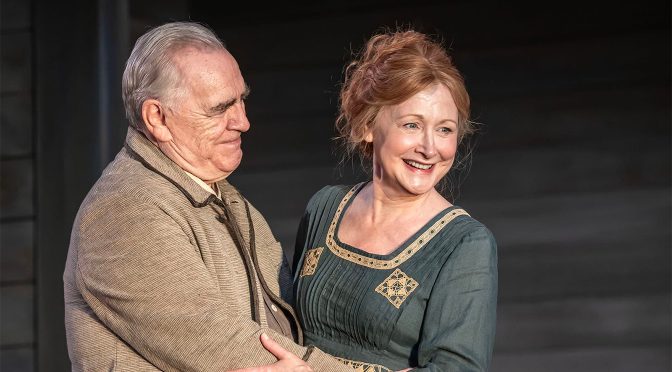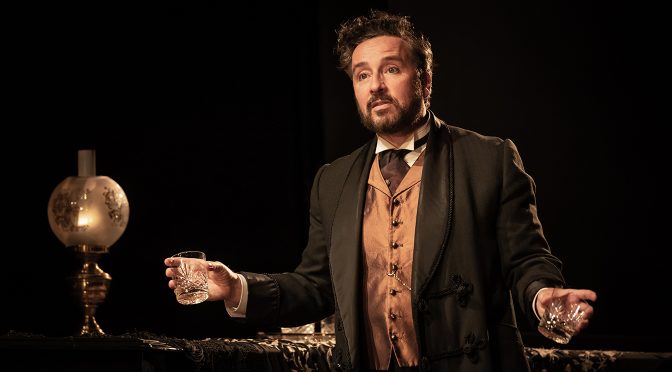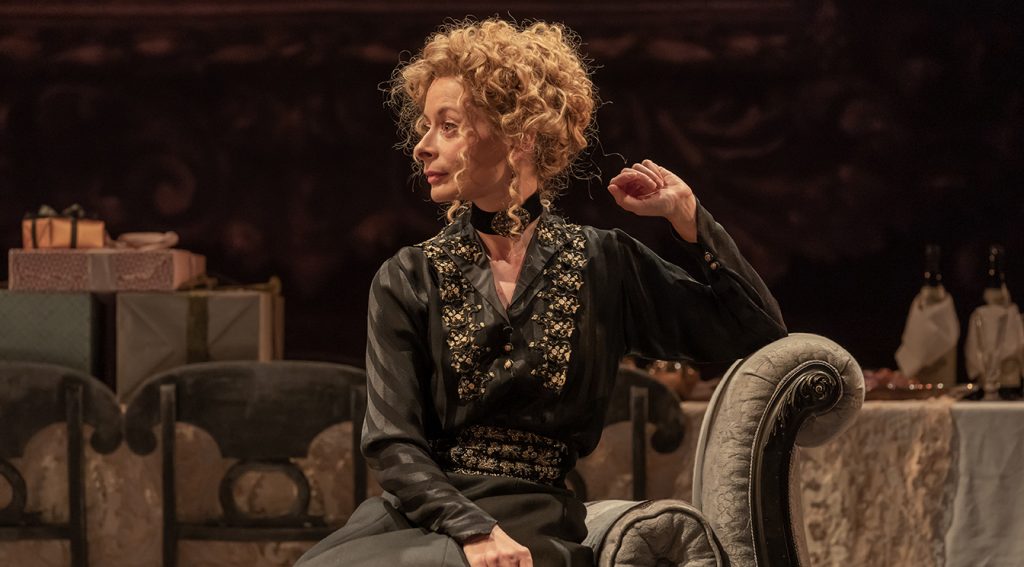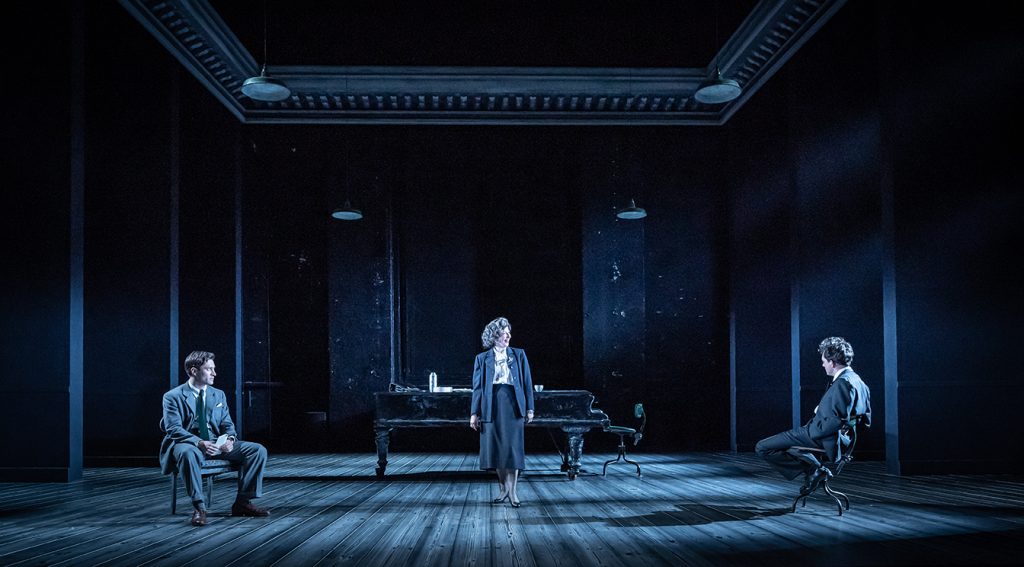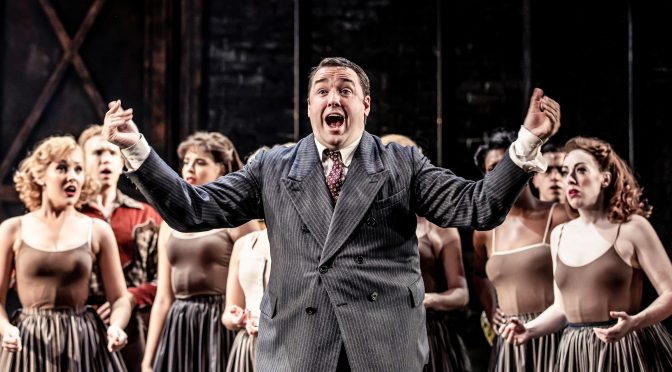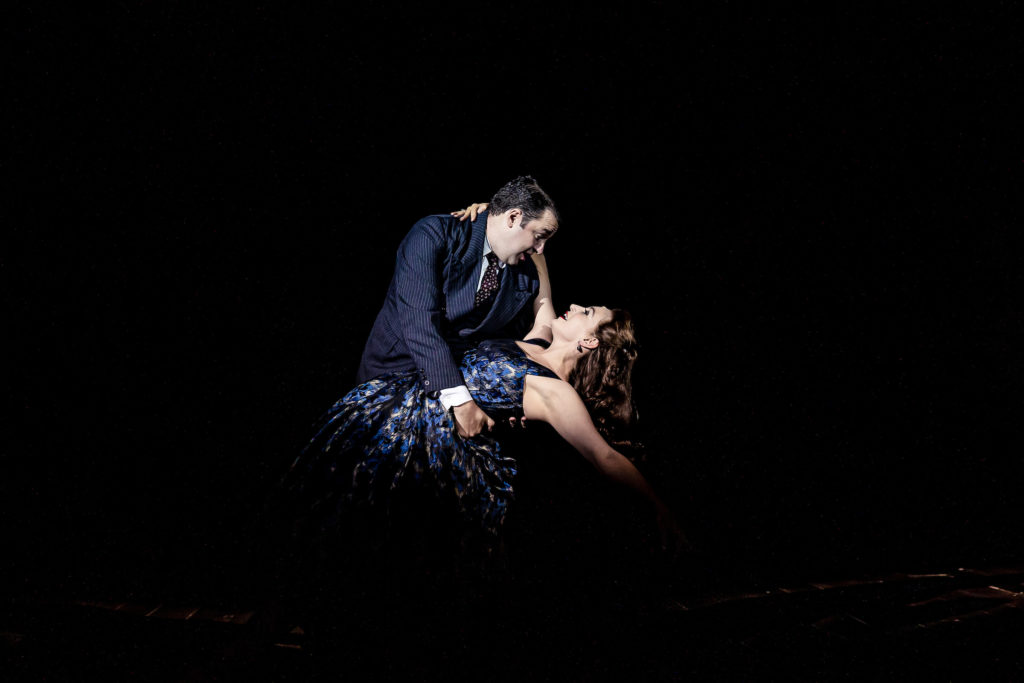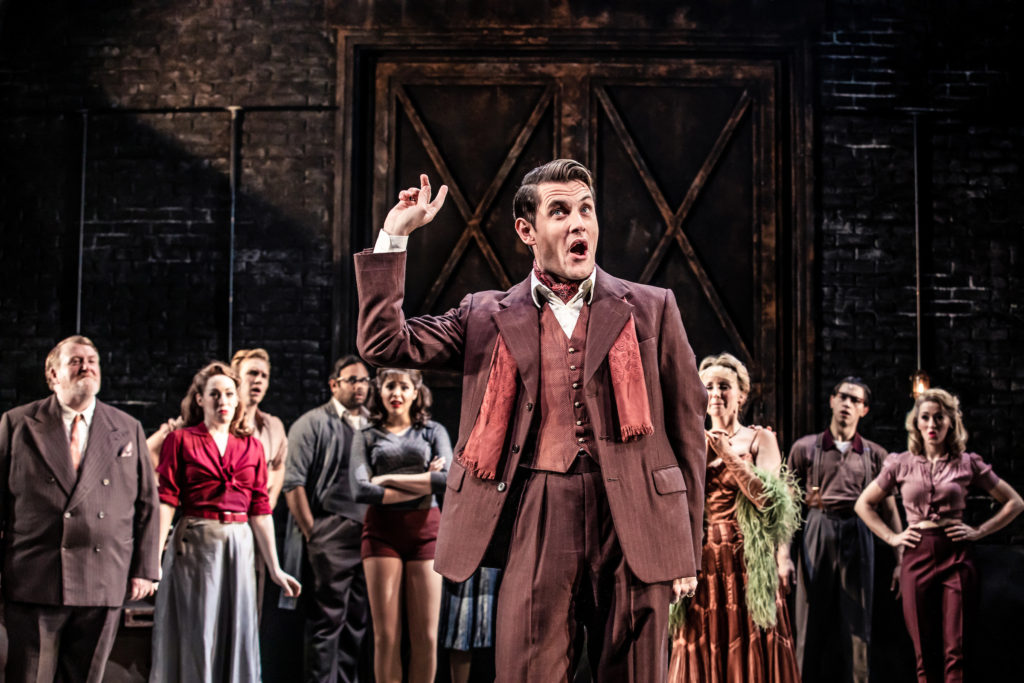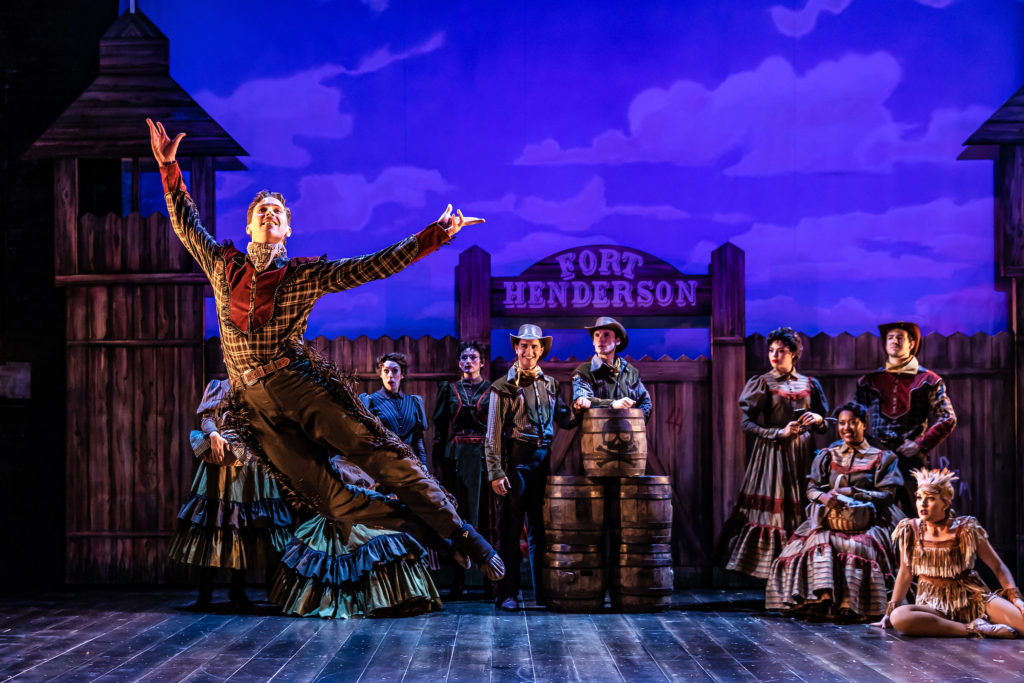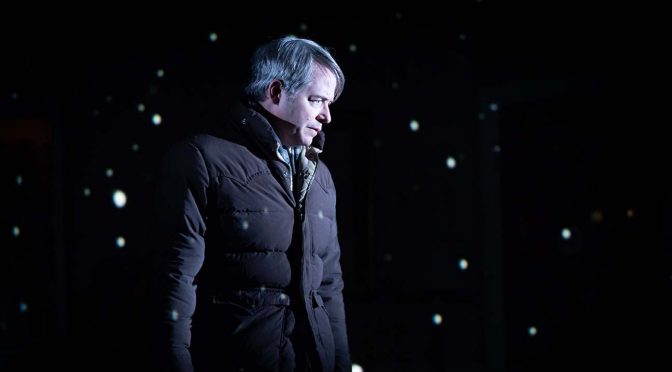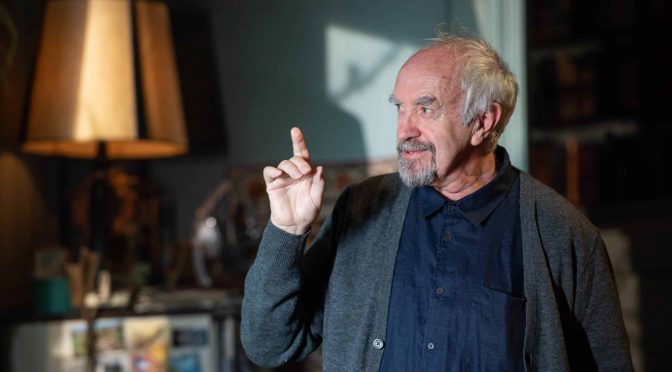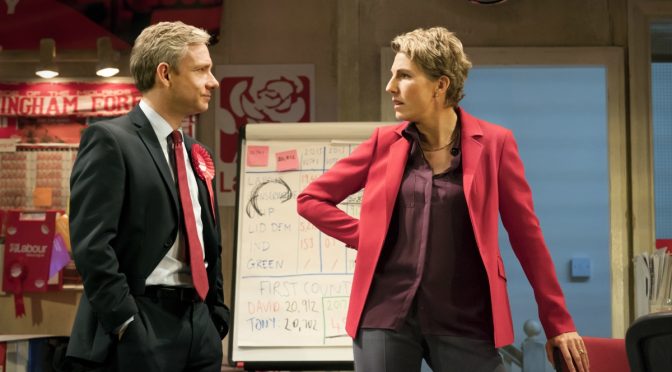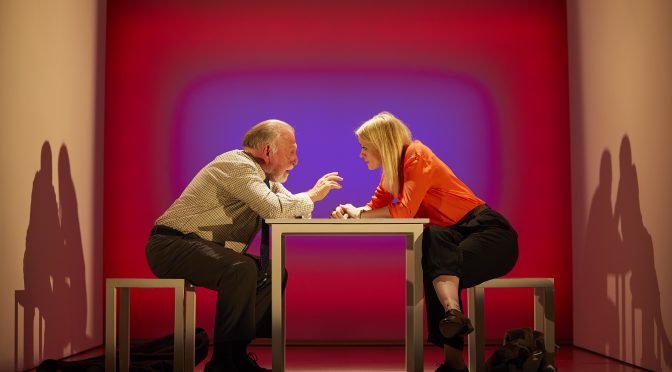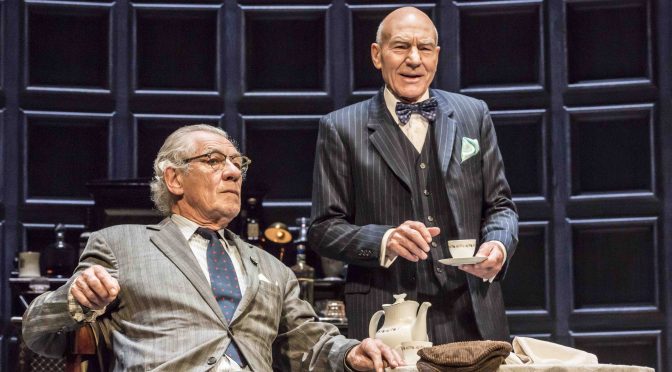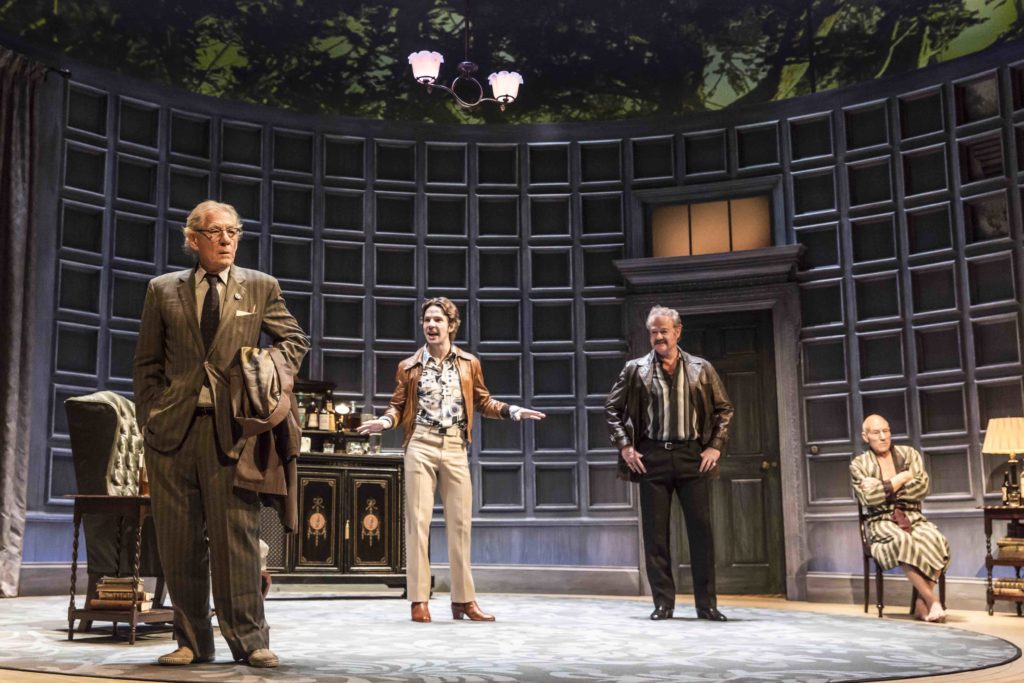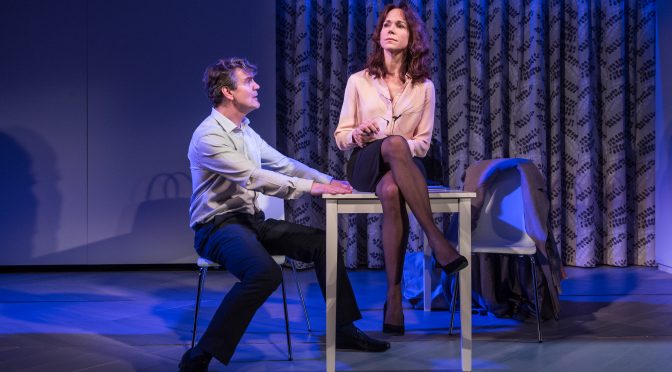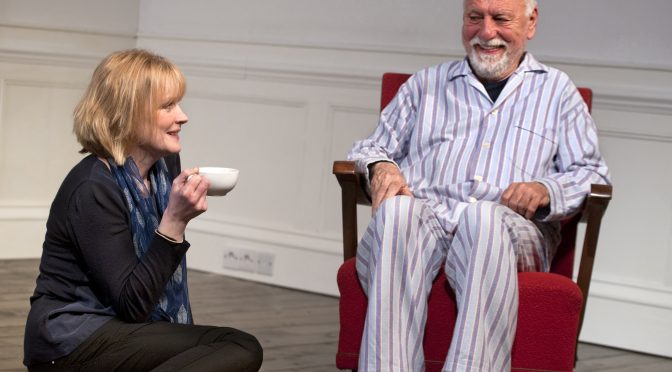In the satirical novel Cold Comfort Farm there’s a quip that Eugene O’Neill’s plays get in trouble with the RSPCAudiences for being so long. It’s true, you won’t get out of the theatre until quarter past ten if you see Long Day’s Journey into Night. And depending on your seat, you might well be in pain. But this revival from director Jeremy Herrin is a reminder of what a masterpiece the play is. Hard work but worth it.
The piece is remarkably static; as the family Tyrone struggle with their problems, we get a collection of talking heads. Despite drug addiction, drinking and a terminal illness discovered, nobody moves very much. Herrin holds his nerve and keeps the action controlled. Jack Knowles’ lighting is dark and even Tom Gibbons’ excellent music and sound design is minimal. The result is engrossing in a distinctive manner.
Focus is needed because O’Neill’s play is big. There are so many ‘themes’. As a family drama you expect parenthood and home to figure. The “shabby place” Lizzie Clachan’s set makes so sparse offers no distractions. Meanwhile the marriage between James and Mary, and the sibling relationship between James Jr. and Edmund, are all examined with forensic detail. And don’t forget that Long Day’s Journey into Night can be considered a kind of ‘memory play’. Characters are stuck in, or looking to, the past. Is this starting to sound like CliffsNotes? It’s been mentioned already… there’s a lot to think about.
mother’s boy and daddy’s pet
Such material makes fantastic roles for a star-studded cast. Brian Cox takes the lead as patriarch James and is suitably commanding. This is a generous performance; even the fact that James was an actor is underplayed. Cox is the lynchpin of the play but never steals the limelight. The production is an exciting opportunity to see Patricia Clarkson on the London stage and her performance as Mary is terrific. The “constant suspicion” her character suffers from is clear and, as the play goes on, develops a nuance Clarkson’s colleagues feed off. Mary’s drug addiction is never sensationalised, like her son in the play, a role admirably performed by Daryl McCormack; these are characters living with their substance abuse. O’Neill was ahead of his time in seeing addiction as an illness.
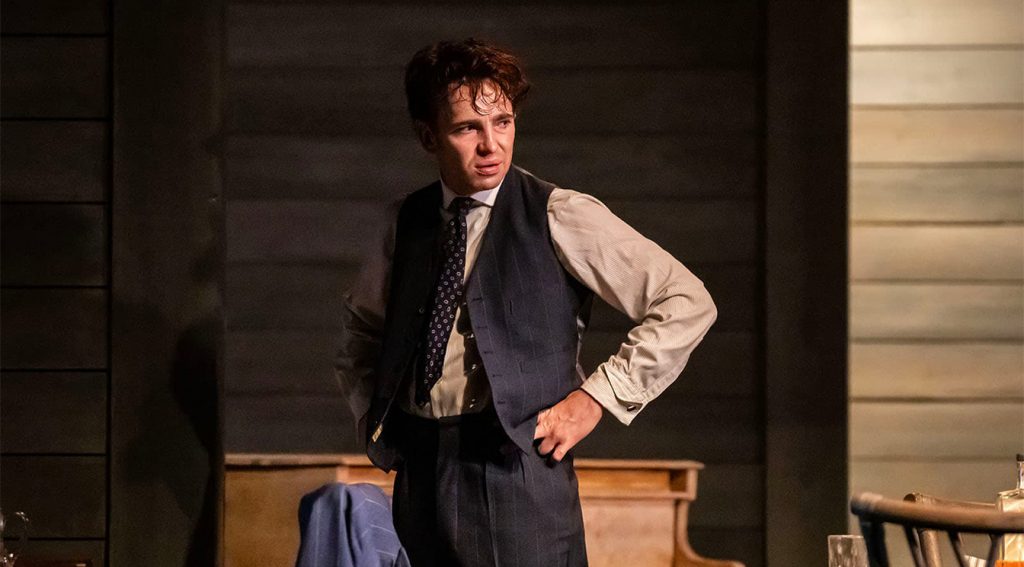
Still, it’s Laurie Kynaston who, in making so much in his role as “mother’s boy and daddy’s pet” Edmund, makes the biggest mark. The character is surely closest to O’Neill himself and is written with a ferocious edge, but Kynaston brings a vulnerability to the role that strips away much of his posturing.
As if all the personal drama were not enough, there’s a discussion of pessimism verses optimism hardwired into the text that Herrin brings out brilliantly. James may be a miser but he also looks on the bright side, in conflict with the younger generation’s admiration of Schopenhauer or Nietzsche. Yet even Edmund (so “degenerate” he likes French poetry!) gives us a magnificent philosophical passage about becoming one with nature that provides a highlight.
These characters have big problems and existential angst, there’s so much about thwarted ambition and loneliness, it is easy to see the piece as depressing. But there’s as much affection as pain in the play. From the opening you can sense how the arguments contain love, something gentler. Behind the quips about snoring is the fact that nobody in this house sleeps. They have too much on their minds. But note, everyone is worrying about everyone else being awake.
Until 8 June 2024
Photos by Johan Persson

